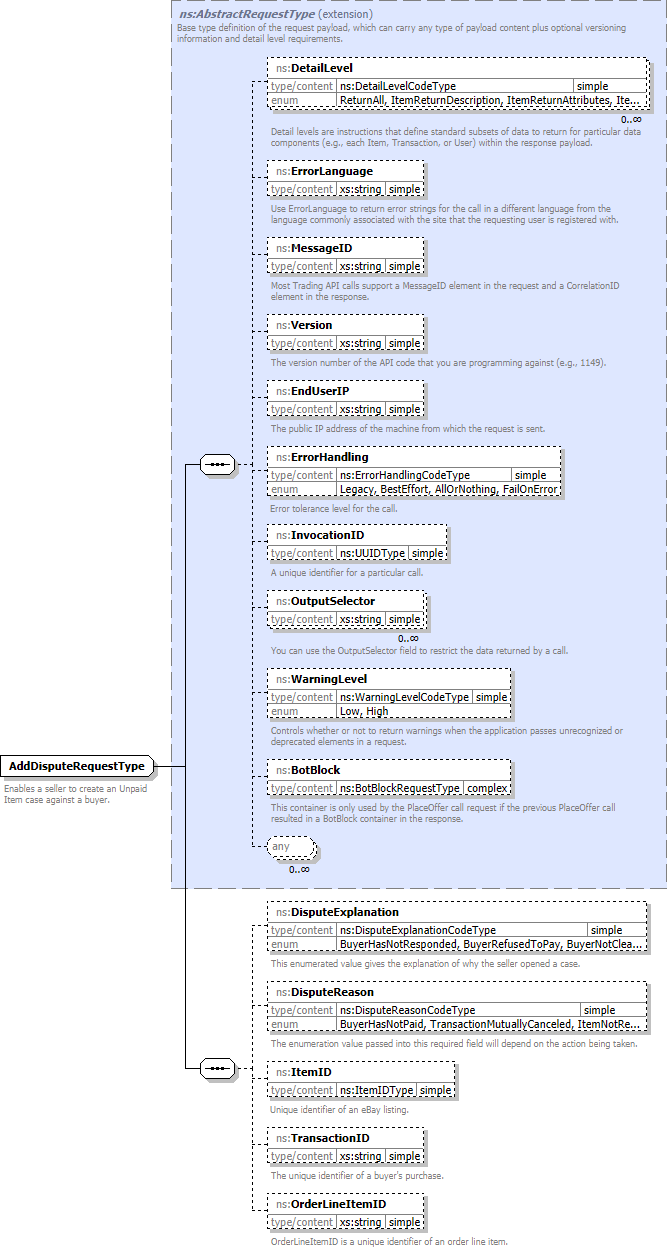
|
eBay Trading API |
|||||||||||||
Namespace: |
|
Content: |
|
Defined: |
|
Includes: |
definitions of 5 elements |
Used: |
at 1 location |

XML Representation Summary |
|||
<...> |
|||
|
|||
</...> |
|||
|
Type Derivation Tree
|
|
<xs:complexContent>
<xs:extension base="ns:AbstractRequestType">
</xs:complexContent>
<xs:sequence>
</xs:sequence>
</xs:extension>
</xs:complexType>
|
Type: |
ns:DisputeExplanationCodeType, simple content
|
|
||||||||
Enumeration: |
Type: |
ns:DisputeReasonCodeType, simple content
|
BuyerHasNotPaid if the seller is creating an Unpaid Item case against the buyer, or if the seller has ran out of stock on the item, or otherwise cannot fulfill the order.
|
||||||||
Enumeration: |
see details at ns:DisputeReasonCodeType
|
Type: |
ns:ItemIDType, simple content
|
|
||||||||
Type: |
xs:string, predefined, simple content
|
|
||||||||
Type: |
xs:string, predefined, simple content
|
0 since there can be only one winning bidder/one sale for an auction listing.
|
||||||||
|
eBay Trading API |
|||||||||||||
WSDL documentation generated with FlexDoc/XML 1.13 using FlexDoc/XML WSDLDoc 1.2.5 template set. All XSD diagrams generated by FlexDoc/XML DiagramKit. |